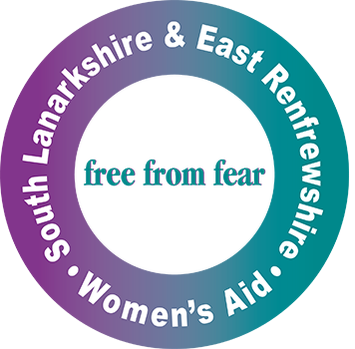 I've got an admission to make. I’ve never had a period. I've never experienced period pains nor have I ever faced the emergency of having no sanitary products when all of sudden I need them. I don't think I need to explain why I've never had a period but the reason I am writing a blog about an issue that I have no lived experience of is because Monica Lennon's period poverty campaign led me to take action on the issue this summer. When Monica started raising the issue in the Scottish Parliament, I had no idea of some of the shocking measures some women are going to because they can't afford sanitary products. Sanitary products are a basic human need. Woman don't get to choose whether to have periods or not, nor do they get to choose what they have in their purse before it comes. So why are women in this country going without sanitary products because they can't afford them? Why are young girls at school stuffing their pants with toilet paper or skipping school altogether through the embarrassment of not being able to access proper sanitary protection? After the Council elections in May our minority Labour administration asked Council officers to look at ways in which we could provide free sanitary products in all our secondary schools. By the time the schools returned for the new term in August we had installed vending machines in our secondary school toilets that provide tampons and pads free of charge. The scheme has been welcomed by pupils and regularly comes up in discussions as we visit secondary schools for our Joint Youth Cabinet meetings. Since we launched our initiative other Councils have followed our lead and the First Minister has pledged to install a legal duty for free sanitary products to be available in all schools, colleges and universities. That's great but it’s not being rolled out until next August - we took our decision and launched it within weeks, there is no need to wait. It’s also the case that the key to any obligation to provide sanitary products in schools, colleges and universities is how it is prescribed. For example, in some colleges and universities the Students Association or woman's groups already help with sanitary products but it is the students themselves who donate the items and then anyone wishing to access the provision needs to go, in person, and request help. Is that going to be enough to satisfy any obligation the Scottish Government may set? Does it treat woman with dignity and respect? For me, it doesn't. The implementation of any obligation is therefore crucially important. We must also acknowledge that what we have done in North Ayrshire secondary schools, and what the Scottish Government are talking about doing with colleges and universities, does not end period poverty. Yes, it gives access to pupils and students and that is a positive step but what about their family? What about their neighbours who are also struggling? In North Ayrshire I would like to see our scheme rolled out into leisure facilities and other venues but more importantly I support Monica Lennon's call for a universal approach to sanitary provision across Scotland. That’s why I support the period poverty bill and have responded to the consultation. It is why I am asking you to support it too and make your voice heard by completing the consultation before the deadline on 8th December.
0 Comments
 I am not quite sure when period poverty was first heard of by me, or the first time our organisation’s local MSP Monica Lennon’s campaign first came to my attention. What I do remember is thinking of how normalised the plight of managing the cost and impact of menstruation was, and how could we have missed it. In an environment where we work daily to resist normalisation of abuse, sexism and misogyny I was disappointed that this known issue had slipped under the radar. That is not to say that on a scale of ‘picking our fights’ at work, we can’t be forgiven in our own normalisation of this plight, but still…. The plight of period poverty has resonated. Does resonation come on the back of delighting in someone else picking up the sisterhood slack as we work on the front line? Or is it sheer gratitude that there is a campaign that is so ‘bloody’ useful to women? Or does it resonate because it is such a damming indictment of our ‘progressive’ society that this exists as an issue at all? I imagine it is a collection of all of the above, with an added frustration at the sheer indignity of the issue. Indignity is all too identifiable within the confines of the work we do, so to consider the ramifications of period poverty is to acknowledge an ever extending reach of abasement. ‘Hunt the last tampon or towel’ will be a familiar trial to many, as will the chase to get supplies between our friend ‘flow’s’ regular visit. Familiar to will be panicked rounds with friends or colleagues to see who can come to your rescue. Such imposition is for many fleeting and resolved by restocking and finding the nearest facility to get sorted, free to continue onto your daily. What if you don’t have the scope to restock? How do you go about your daily when you do not have the luxury of sanitary wears? At this point such an essential item really must feel like a luxury[1]? I recall a case where the perpetrator refused to provide money for the purchase any sanitary products and ‘waste his money on her’. This not being enough, the perpetrator also removed all underwear and clothing for her bottom half from the home when she was menstruating thus rendering her not only house bound but bathroom bound. Consider now the work in women’s aid organisations throughout the country. We work to empower women whose world has shrunk in order for them to survive, recover and thrive. We work to undo the loss of confidence and self-worth and to lessen living anxieties of trauma. We work to facilitate safe space for her to stretch into herself and the world around her. We work to assist in regaining of control and self-confidence. We work to eradicate control and oppression of women. Within our field of work period poverty is at worse a further presentation of coercive control, at best an expression of societal disregard of females’ basic right to be free to participate in her daily life. This is why period poverty is important to us at WASLER; this is why it has resonated so. Heather Russell CEO Women's Aid South Lanarkshire and East Refrewshire [1] In March 2016, Parliament created legislation to eliminate the tampon VAT. It is expected to go into effect by April 2018.  Universal access to menstrual products is absolutely crucial for all people that menstruate, but especially for young and trans people - two groups disproportionately affected by the stigma surrounding periods and period poverty. Periods are still a very taboo topic within our society, and young people who menstruate can often feel ashamed to talk about them, even though they are such a significant part of many people’s lives. Menstruation can start as early as nine or ten, and last until you are in your fifties – or even later. The embarrassment they feel is only magnified when they do not have access to the necessary products, such as tampons and pads. Menstrual products are incredibly expensive, which is a huge issue for young people as many of them cannot get jobs due to education and other responsibilities, and you can feel like a huge inconvenience asking for money for menstrual products, particularly if you are from a low-income family. Even with many of the major supermarkets now covering the ‘Tampon Tax’, menstrual products can still cost upwards of two pounds, a cost inaccessible for many. Period poverty is detrimental to every part of a young person’s life, especially when it comes to education and socialising with friends - two things that are imperative to development and growth as a person. Without universal and free access to menstrual products, young people have difficulty doing anything – either not leaving the house or having to use makeshift products. Individuals I have spoken to have told me that they have used toilet paper, or even a sock wrapped around their underwear, as a makeshift pad when they couldn’t afford to buy the real products. This is clearly very unhygienic and potentially even dangerous for their health. Many young people must make the choice between buying lunch that day, or being able to afford the products that enable them to do everything they want to do. This quite clearly isn’t a world we want to be living in, young people shouldn’t have to go hungry or risk their health because they do not have access to the products they need. The problem is only exacerbated further for trans people that menstruate. Periods are regarded as a “women’s issue” and highly feminised within our society. If you do not identify as a woman, yet still menstruate, feminine associations with menstruation can make your gender feel very invalidated and may heighten your gender dysphoria, the significant and valid distress trans people feel due to their body not reflecting the gender they know themselves to truly be. Buying menstrual products can heighten these feelings, as they are perceived to be items only for women. As a transgender young person, menstruation and discussions of period poverty can leave me feeling both dysphoric and isolated as my voice often isn’t heard or respected, but it is absolutely imperative that there is universal access to menstrual products for everyone. Period poverty can have long-lasting impact on a person’s life, affecting their confidence and self-esteem, and if they are missing school due to a lack of available and free products, potentially an effect on their future life chances and career options. Universal access, as Monica Lennon MSP’s Bill proposes, would have a long-lasting and positive impact on so many lives, not just for young and transgender people. It is crucial that everyone supports it. |
AuthorWrite something about yourself. No need to be fancy, just an overview. Archives
February 2024
Categories |
 RSS Feed
RSS Feed